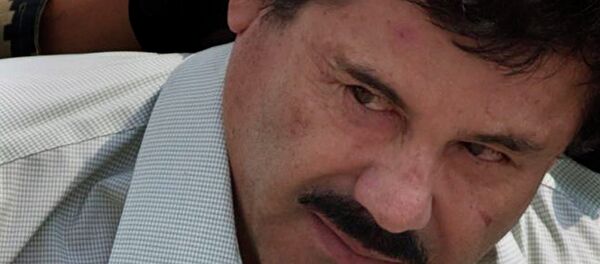Up from 25,056 murder cases opened in 2017, the latest numbers show that investigators initiated a total of 33,341 murder investigations in 2018. The 2018 figures are the highest since officials first began recording the data in the late 1990s.
Records also noted an increase in murders involving women, detailing an increase from 735 in 2017 to 861 in 2018.
The central state of Guanajuato, one of the 32 states that make up the US' southern neighbor, registered a whopping 3, 290 murder investigations in 2018 — three times higher than the number opened the year prior, according to Reuters.
It's estimated that more than 200,000 people in Mexico have either been killed or become one of the disappeared since Mexico's government, then headed by former Mexican President Felipe Calderón, declared war on organized crime in December 2006.
During the Calderón administration, which ended in 2012, the Mexican military was tapped to combat the cartels, and although it did succeed in capturing various cartel heads, including Eduardo Arellano Felix, the leader of the Tijuana cartel, it ultimately triggered new violence that came from new cartels trying to claim lost territories, and that violence has now rolled on for more than a decade.
Guadalupe Correa-Cabrera, an associate professor at the Schar School of Policy and Government at George Mason University, told Sputnik on Tuesday that the level of violence was further escalated by the Calderón administration's failure to form localized police forces that were expected to curb any further issues.
"We started to see more cells when the government beheaded the cartels. We started to see these fights within the groups and cells started to appear," she said, noting that in at least one Mexican state, the number of cartel cells vying for territory has leapt from two to more than two dozen.
After Calderón came the administration of former Mexican President Enrique Peña Nieto, who during his six-year term saw a 40 percent rise in murder investigations. Similar to Calderón, Nieto followed the same tactics, focusing on taking out and arresting cartel leaders such as alleged former Sinaloa head Joaquin "El Chapo" Guzman.
And just like his predecessor, Nieto's efforts further fragmented cartels and sparked vicious infighting for power and territory among factions, Correa-Cabrera told Sputnik.
"During the Pena Nieto administration, there was this idea that there was going to be a creation of a gendarmerie, a semi-militarized police… that never happened," she said. "Basically what happened is that most of the [cartels] fragmented, but with protection, of course, of state, local and federal authorities, because there is no other way that a group that started with a few dozen people grew the way it grew."
And conflicts aren't limited to the drug runners themselves — they also ensnare state police officials. In February 2018, Mexican authorities charged 19 current and former state police officials tied to cartels over the forced disappearance of 15 individuals.
AP reported at the time that top police commanders and subordinate officers had been involved in a ring that "abducted, tortured, interrogated, raped and killed private citizens."
The 2018 case held strong similarities to a 2015 incident in which Vera Cruz officials were found to have kidnapped five individuals and handed them off to members of the Jalisco New Generation cartel, now considered one of Mexico's most violent cartels.
In 2015, the Jalisco cartel was accused of using rocket-propelled grenades to shoot down a Mexican army helicopter, killing six soldiers. According to Business Insider, six members of the cartel were later caught as part of Operation Titan Shield in the Jalisco and Quintana Roo states.
Residents of the Jalisco state previously made headline news in 2018 after reports emerged that locals were running a refrigerated semi-trailer truck out of local towns because it was housing roughly 150 corpses. Officials were reportedly struggling to find space to hold bodies tied to the rising drug cartel violence. At the time, authorities explained that Mexican law prevented the cremation of unclaimed bodies until criminal investigation had been completed.
But the violence isn't just linked to drugs and kidnappings, according to Correa-Cabrera, who noted that groups such as the Huachicoleros are venturing out elsewhere and looking to profit from stolen motor fuel and tampered alcoholic beverages.
"The business has changed," she said. "We see different cells now. You can do many other things. You are highly armed, you control a territory, and you can form or control illegal activities in your territory."
"That also responds to a sophistication and to a modernization of the activities of organized crime. Now criminals are armed, they get access to arms from the United States easily, cheaper… that's connected to the business model of the groups."
Incidentally, on the same day figures were released, news broke that 34-year-old Rafael Murua, a community radio station director in the Mexican state of Baja California Sur, had been found murdered in a ditch. According to local media reports, Murua had been under government protection since 2017 after he began receiving death threats.
Mexico's National Institute of Statistics and Geography has not yet released homicide figures for 2018. The agency's 2017 figures reported a total of 31,174 murders using other methodologies, according to Reuters.




